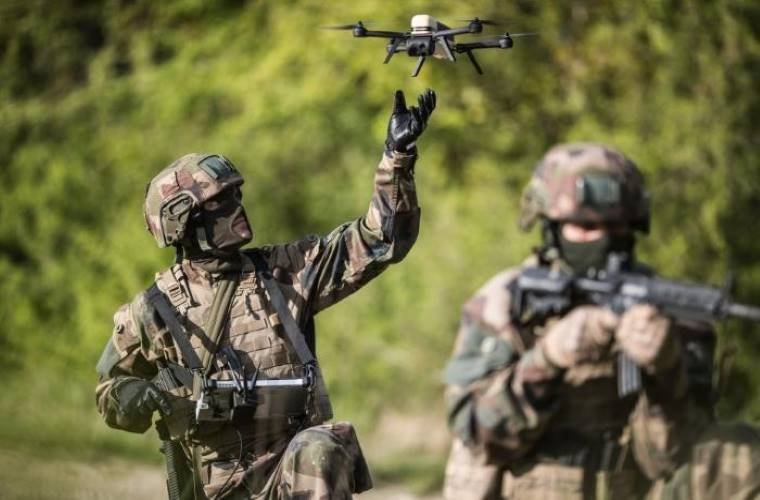In the high-stakes Chess game of international politics, artificial intelligence (AI) has emerged as the board on which future conflicts will be strategized and future societies shaped. In a recent essay published by The RAND Corporation, researchers there examined the current trajectory of AI development and have painted a picture of a world where AI is not merely a tool but a transformative force with the power to redefine global leadership.
The race to AI supremacy is not just about technological bragging rights; it’s a strategic maneuver to gain a geopolitical edge. AI’s potential to drive economic growth, revolutionize military capabilities, and enhance cyber operations makes it a critical asset for any nation-state. The United States, long the torchbearer of technological innovation, finds its dominance challenged by China’s ambitious AI strategy. This contest is not just about who can develop more intelligent algorithms; it’s a proxy for ideological, economic, and military power. In other words, a 21st-century Moon-shot.
The current tension between the US and China in the AI domain is a flashpoint for broader geopolitical concerns. China’s “Next Generation Artificial Intelligence Development Plan” is a clear signal of its intent to become the world leader in AI by 2030. Meanwhile, the United States, through initiatives like the American AI Initiative, is striving to maintain its lead. This rivalry is not confined to research labs and tech campuses; it extends to the global stage, where AI capabilities are increasingly seen as a barometer of national power.
In the military arena, AI is poised to revolutionize warfare. Autonomous drones, AI-driven intelligence analysis, and predictive logistics are just the tip of the iceberg. The United States Department of Defense’s Joint Artificial Intelligence Center (JAIC) and China’s advances in military AI applications indicate a future where AI not only supports but also conducts warfare.


Lt. Gen. Jack Shanahan, the former director of the Pentagon’s Joint Artificial Intelligence Center, said in a 2019 speech that the “integration of AI capabilities” is being pursued by the Department of Defense. Shanahan said that he could imagine a future where AI could be used in determining how to use lethal force after a human makes the decision.
“I’m not going to go straight to ‘lethal autonomous weapons systems,'” he stated, “but I do want to say we will use artificial intelligence in our weapons systems … to give us a competitive advantage. It’s to save lives and help deter war from happening in the first place.”
The implications are profound and double-edged: AI could help deter conflicts and make conflicts more precise or more impersonal and, potentially, more frequent. The ethical and strategic dilemmas of AI in combat, such as using lethal autonomous weapons systems (LAWS), are concerns that have yet to be fully grappled with on the international stage.
The cyber domain is another battleground that AI is transforming. Cyberattacks can now be more targeted, complex, and challenging to trace back to their origins. AI enhances the ability to exploit vulnerabilities at unprecedented speed and scale. The United States’ Cyber Command and China’s Strategic Support Force are both investing heavily in AI to defend against and conduct cyber operations. Microsoft’s Vice Chair, Brad Smith, wrote in 2020 that large-scale hacks, such as the recent SolarWinds hack, attributed to a nation-state actor, demonstrate the scale of disruption possible when AI augments cyber warfare.
“These types of sophisticated nation-state attacks are increasingly being compounded by another technology trend, which is the opportunity to augment human capabilities with artificial intelligence (AI),” Smith wrote in 2020. “One of the more chilling developments this year has been what appears to be new steps to use AI to weaponize large stolen datasets about individuals and spread targeted disinformation using text messages and encrypted messaging apps. We should all assume that, like the sophisticated attacks from Russia, this too will become a permanent part of the threat landscape.”
Beyond military and cyber applications, AI’s most profound impact may be on society itself. AI is set to reshape economies, with automation promising efficiency gains but also job displacement. The inequalities could stretch the societal fabric that AI is likely to exacerbate. Moreover, AI’s role in information dissemination and consumption has the potential to influence public opinion, with implications for democracy and governance. How nations adapt to these changes, manage the societal implications, and govern the use of AI will be crucial in determining their stability and prosperity.
Looking to the future, AI’s trajectory will intersect with every aspect of human life. In the geopolitical context, AI will determine a nation’s influence and status. Economically, AI will drive innovation and productivity, potentially widening the gap between the “AI-haves” and “AI have-nots.” Militarily, AI will redefine the principles of deterrence and defense, making the next war—if it comes—a battle of algorithms as much as armaments.
The interference of AI in traditional geopolitical dynamics cannot be overstated. It can potentially alter the balance of power by enabling smaller nations with advanced AI capabilities to punch above their weight. Regarding societal development, AI could either be a force for good, democratizing access to information and services, or it could deepen divides and erode privacy and individual freedoms. These concerns surrounding AI’s rise as a geopolitical lever necessitate a robust international governance framework. The world needs a set of rules to ensure that AI development is aligned with human values and global stability. This includes agreements on the militarization of AI, norms for cyber conduct, and frameworks to address the societal impacts of AI.
AI is the new fulcrum of geopolitical power. The United States and China, as the current frontrunners in AI, carry a particular responsibility to lead the way in establishing global norms. The choices we make now will determine whether AI becomes a tool for widespread benefit or a new vector for conflict and division. The future is not just being written in code; it is being coded with the power to transform our world.
MJ Banias is a journalist and podcaster who covers security and technology. He is the host of The Debrief Weekly Report and Cloak & Dagger | An OSINT Podcast. You can email MJ at mj@thedebrief.org or follow him on Twitter @mjbanias.

